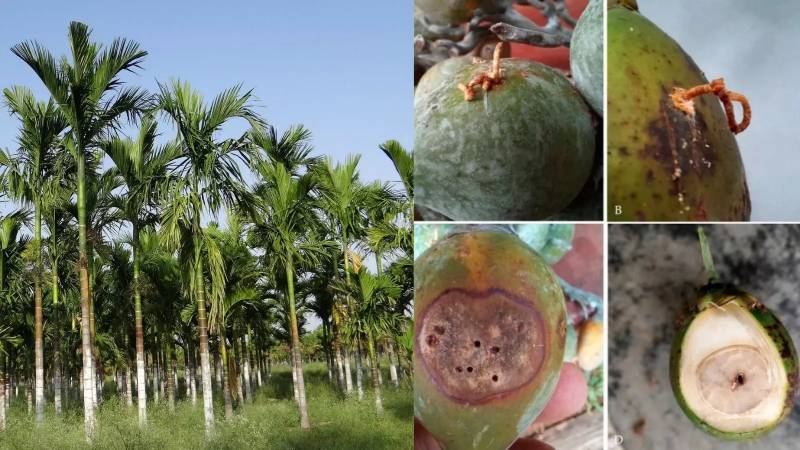Scientists at the ICAR-Central Plantation Crops Research Institute (CPCRI) in Dakshina Kannada district in Karnataka have identified a pest that attacks the arecanut plant.
“We observed the Asian Ambrosia Beetle [xylosandrus crassiusculus] in young arecanut saplings at Markanja village in Sullia taluka and at Kaniyur village in Kadba taluka,” Shivaji Hausrao Thube, scientist at CPCRI, told Gaon Connection.
The pest that usually infests the stems, has been spotted in the fruits of the arecanut plants for the first time, said the scientist. “And, though it is not very dangerous, there is now the worry about the pest eating away at the fruit from the inside and causing them to rot, when the arecanut is in storage,” Thube said.
Also Read: Tackling the menace of leaf roller pests, with nothing more than a plastic rope
According to CPCRI, the arecanut is an important cash crop in many south Asian countries. India leads the production of arecanut and more than 16 million people depend on the arecanut industry for their livelihood. The arecanut is also used in the making of Ayurveda and other traditional medicines.
“Scientists are always alert to plant diseases and pests. They routinely carry out inspections,” Anita Arun, acting director CPCRI, Kasargod in Kerala, told Gaon Connection. “Now that our scientists at the regional research centre in Dakshina Kannada have identified this pest, they will do additional research and find eco-friendly ways to stop it from spreading,” she said.
Also Read: Non-pesticidal management in agriculture is a win-win for farmers and consumers
Besides being the highest producer of arecanut, India is also its largest consumer. Arecanut plantations are found mostly in the states of Karnataka (that grows 40 per cent of the produce), Kerala (25 per cent), Assam (20 per cent), and the rest is grown in Tamil Nadu, Meghalaya and West Bengal.
Read the story in Hindi.



















